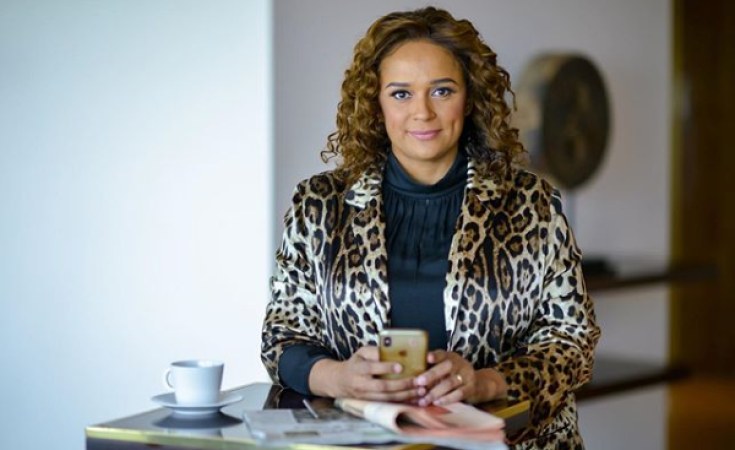The Angolan main investor and businesswoman, Isabel dos Santos says that the questions about the origins of her investments are just part and parcel of being an entrepreneur – especially an African one.
In an interview with Lusa – during her recent visit to Cape Verde to launch The Isabel dos Santos Merit Grant – the businesswoman, who is the daughter of the former Angolan President Jose Eduardo dos Santos said: “A businesswoman from Africa is often asked about how she will finance her business, where her funds come from, and the plans she has for the business. However, nowadays, all companies receive these requests – they are normal requirements.”
She went on to say: “I get more requests for clarification than other companies because of people being politically linked. There is always interest in trying to understand how a business is founded and funded.”
The Angolan businesswoman has numerous business interests in sectors including energy, banking, distribution and retail, and telecommunications, particularly in Angola and Portugal. As a result, she has extensive business experience in understanding good reputation assessment, especially when considering business relationships with international partners.
She is currently working with more than 15 banks around the world.
“I work with banks in Cape Verde and in other African countries. These banks support us and believe in the validity of the projects we propose. I have a lot of debts. I have a lot of financing to pay and interest rates are high. The financial side of the business is not always easy, but we have good teams and we work hard for it.”
Isabel dos Santos is not concerned about the questions around her investments. She pointed
to examples of successful private projects, such as with the BIC Bank or the telecommunications operator Unitel and added, “The rumours about public money are false. Fortunately, I have never worked with public money. I like to work with the market and within the private sector. I like to make a product that people want to buy because it is good, offers value and has a good price.”
She emphasized, “I have always been scrutinized and that is normal. It is not something that worries me. I have partnerships with international companies, multinationals, consulting firms and commercial banks that have to comply with strict requirements. Before working with a partner you have to check this person, and who she represents and who she says she is.”
Outside of Africa, there is more susceptibility to the belief that if the money comes from Africa, or from African entrepreneurs, that it needs to be regarded with caution. “This is often linked to prejudices and is based on a lack of information. When we look at the media’s narrative about Africa, it is often negative. When it comes to Africa, we often only talk about politics, governments, wars, conflicts, and disasters,” she said.
This warrants a change in narrative around Africa. “We rarely talk about African companies and regional entrepreneurs are little known. This means that the primary actors of African economies are still little known in Europe and the West. Hence, there is a certain level of distrust. And that distrust is not related to me only.”
During the interview, the 46-year-old explained how her career as a businesswoman began in Angola more than two decades ago. “I didn't start working yesterday; I didn't start working in 2010; I started working in the ‘90s. And along the way one builds a reputation, builds relationships with companies, with banks, and one grows and receives support, and this is how I work.”
The BBC named her in the 2017 100 Women List, which details the world’s most influential and inspirational women, while French-language Jeune Afrique cited her as one of the 100 Most Influential People in Africa.
The entrepreneur added that the key to her success was the high growth of the Angolan economy when she began investing. “We were lucky. Angola developed. During those 15 years, between 2002 and 2017, the Angolan economy had an average growth rate of almost 8-9%,” she recalled, pointing out that Angola’s Gross Domestic Product (GDP) grew in this period, by almost 900% from $30 billion to $130 billion.
“During this period, many other entrepreneurs and Portuguese companies made money and profit in Angola, hundreds of millions of euros, and these matters are never questioned. Therefore, there’s no doubt that Angolan companies and entrepreneurs investing within the same business environment also made money, worked, and invested. [...] In fact, the investments are present, the jobs are obvious, the constructions are visible, these are not just abstract investments,” she said.


